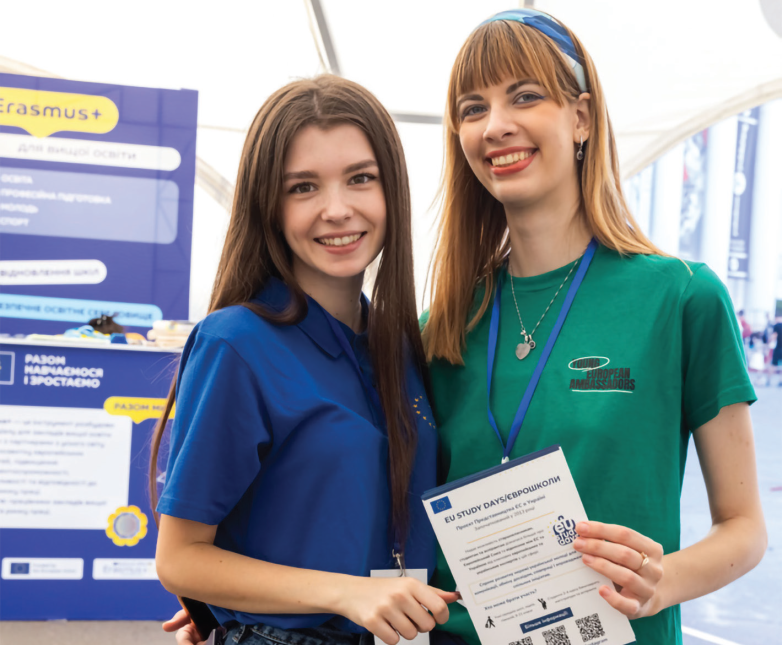Page 4 of 7
The EU pays no less attention to supporting Ukrainian universities. During 2014–2022, a total of
EUR 10 million
was allocated under the Erasmus+ programme to develop their infrastructure, update curricula, and improve university and student governance.
Since the onset of the full-scale invasion, a portion of funding has been diverted to help universities that had to start their operations in a new location for the second or even third time. Thanks to the EU’s Erasmus+ programme, 47 out of 147 Ukrainian universities (or 30% of all educational establishments supported through this programme across Europe) have benefited from assistance, including 9 relocated from the temporarily occupied territories.
In 2021–2024, 8 173 grant mobility projects have been implemented for students and faculty of Ukrainian universities under the Erasmus programme. These include 6 virtual exchange projects for young people and students, 13 joint master’s degree projects (within the framework of Erasmus Mundus), 138 master’s scholarships for Ukrainian students, 142 partnership projects in the fields of education, training, youth and sports, 256 European Studies projects (with an average budget of EUR 100 000 each), and 47 higher education capacity-building projects.
In 2020-2024, the EU provided grant support to displaced universities in the east of Ukraine. This support continued after Russia’s full-scale invasion when these universities were forced to relocate once again.
8 EU grants of
EUR 8 million
in total were reprogrammed
to assist the universities in re-establishing themselves in the new locations and to provide further support for improving facilities, curricula and student support services. 4 projects with Donetsk National Technical University, Luhansk State Medical University, Donbas National Academy of Architecture and Civil Engineering, and Donetsk State University of Internal Affairs are still ongoing until December 2024.
With the support of the same programme, the ‘Digital University’ was created in Ukraine (with a project budget of EUR 5 million), and 40 Ukrainian universities joined more than 25 university alliances in Europe to work together to address challenges in education.
EU Information Centres have been set up
in 25 Ukrainian universities,

providing students with comprehensive up-to-date information on EU policies, programmes and new publications. It is significant that more than 40 000 people have taken part in EU Career Days organised by these centres since 2021. Since the beginning of the aggression, activities are also available online. Taking into account the progress made towards European integration, in order to bring Ukraine’s education sector in line with EU standards and requirements, 25 reform support experts are working with the Ministry of Education to implement the necessary changes in pre-school education, create the New Ukrainian School, improve vocational education and training, streamline digital learning, and reform public administration and higher education (13 experts are working on this with the support of Erasmus+). EU Study Days are regularly held to raise awareness of the European Union and EU-Ukraine relations among young Ukrainians.